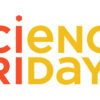Ali Torkamani et al. –
Approximately 11 000 individuals younger than 45 years in the United States die suddenly and unexpectedly each year from conditions including sudden infant death, pulmonary embolism, ruptured aortic aneurysm, and sudden cardiac death (SCD). Sometimes the cause of death is not determined, even after a clinical autopsy, leaving living relatives with an inaccurate or ambiguous family health history. Moreover, the rate of clinical autopsy has declined from approximately 50% fifty years ago to less than 10% in 2008, contributing further to uncertain family health histories.1 This uncertainty may be partially resolved with postmortem genetic testing (“molecular autopsy”).2 Initial studies, limited to cardiac channelopathy and epilepsy genes, have yielded molecular diagnoses in approximately 25% of cases.3,4 A more comprehensive molecular autopsy program, expanded beyond SCD, has the potential to provide more accurate family health information to a wider spectrum of afflicted families. Here we report preliminary results from a systematic, prospective, family-based, molecular autopsy study.
Read the full article in JAMA.





